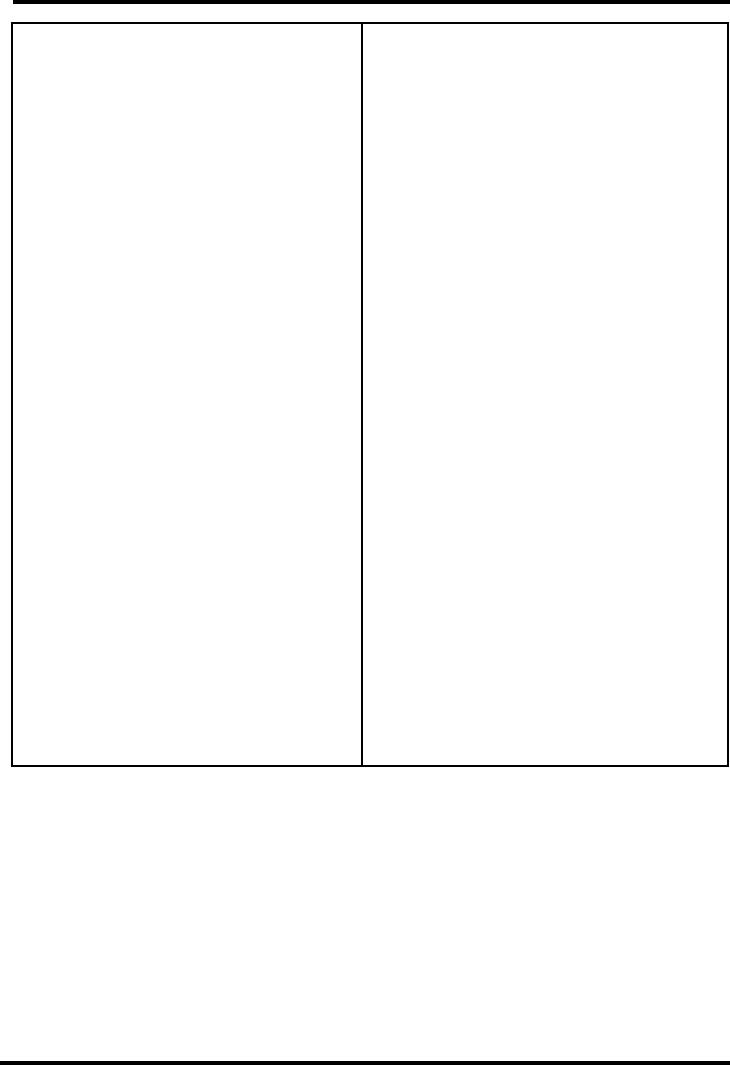 |
INTRODUCTION TO JOURNALISTIC WRITING:Practical, THINGS TO KNOW |
| QUALITIES OF GOOD WRITERS >> |

Journalistic
Writing MCM310
VU
LECTURE
1
INTRODUCTION
TO JOURNALISTIC WRITING
"The
invention of writing is probably the
most important tool for
human advancement, making it possible
for
each
new generation to build upon the
work of the previous, to transmit knowledge from
person to person,
across
cultures and time."
Donald
Norman Stanford University
You
must be ready to learn from
the first day of school.
Don't you want to:
�
Do
well in your studies
�
Enjoy
self-expression
�
Become
more self-reliant
You
know how important writing
will be to you and in your
life. It will be important
from first-grade through
college
and throughout
adulthood.
Writing
is:
Practical
Most
of us make lists, jot down
reminders, and write notes
and instructions at least
occasionally.
Job-Related
Professional
and white-collar workers write
frequently--preparing memos, letters,
briefing papers,
sales
reports,
articles, research reports,
proposals, and the like.
Most workers do "some" writing on the
job.
Stimulating
Writing
helps to provoke thoughts and to
organize them logically and
concisely.
Social
Most
of us write thank-you notes
and letters to friends at least
now and then.
Therapeutic
It
can be helpful to express
feelings in writing that cannot be
expressed so easily by
speaking.
Unfortunately,
many schools are unable to
give children sufficient instruction in
writing." There are
various
reasons:
teachers aren't trained to teach
writing skills, writing
classes may be too large,
it's often difficult
to
measure
writing skills, etc.
Study
after study shows that student'
writing lacks clarity,
coherence, and organization. Only a
few students can
write
persuasive essays or competent business
letters. As many as one out
of four have serious
writing
difficulties.
And students say they like
writing less and less as
they go through school.
THINGS
TO KNOW
Writing
is more than putting words
on paper. It's a final stage in the
complex process of communicating
that
begins
with "thinking." Writing is an
especially important stage in
communication, the intent being to leave
no
room
for doubt.
Writing
well requires:
�
Clear
thinking. Sometimes
you need to have your
memory refreshed about a
past event in order to
write
about it.
�
Sufficient
time. You
may have `stories in their
heads' but need time to
think them through and
write
them
down.
2

Journalistic
Writing MCM310
VU
�
Reading.
Reading
can stimulate you to write
about your own family or
school life. If you read
good
books,
you will be a better
writer.
�
A
Meaningful Task. You
need meaningful, not artificial
writing tasks. You'll find
suggestions for
such
tasks in the section, "Things To
Do."
�
Interest.
All
the time in the world won't help if
there is nothing to write, nothing to
say. Some of the
reasons
for writing include: sending
messages, keeping records, expressing
feelings, or relaying
information.
�
Practice.
And
more practice.
�
Revising.
Students
need experience in revising their
work-- i.e., seeing what they
can do to make it
clearer,
more descriptive, more
concise, etc.
POINTERS
FOR YOU
Remember
that your goal is to make
your writing easier and
more enjoyable.
Make
it real. You
need to do real writing.
It's more important for the
child to write a letter to a relative
than it
is
to write a one-line note on a
greeting card.
Suggest
note-taking. Take
notes on trips or outings and
describe what you saw. This could include
a
description
of nature walks, a boat ride, a
car trip, or other events
that lend you to
note-taking.
Brainstorm.
Do it as
much as possible about your
impressions and describe people
and events to you.
Encourage
keeping a journal. This is
excellent writing practice as
well as a good outlet for
venting feelings.
Write
about things that happen at
home and school, about people
you like or dislike and why,
things to
remember
or things you want to do. Especially
write about personal
feelings--pleasures as well as
disappointments.
Use
games. There
are numerous games and
puzzles that help you to
increase vocabulary and make
more
fluent
in speaking and writing.
Remember, building a vocabulary builds
confidence. Try crossword
puzzles,
word
games, anagrams and
cryptograms de- signed
especially for this purpose.
Flash cards are good, too,
and
they're
easy to make at home.
Suggest
making lists. Making
lists is good practice and
helps to become more
organized. You might
make
lists
of your records, tapes,
baseball cards, dolls, furniture in a
room, etc. You could include
items you want.
It's
also
good practice to make lists
of things to do, schoolwork, dates for
tests, social events, and
other reminders.
Encourage
copying. If you
like a particular song, learn the
words by writing them down--replaying the
song
on
your stereo/tape player or jotting
down the words whenever the
song is played on a radio
program. Also
copy
favourite poems or quotations from books
and plays.
Source:
Learn to write; US Department of Education.
DIFFERENCE
BETWEEN SPEAKING AND
WRITING
There
are many differences between
the processes of speaking and
writing. Writing is not simply
speech
written
down on paper. Learning to write is
not a natural extension of learning to
speak. Unlike speech,
writing
requires
systematic instruction and
practice. Here are some of
the differences between speaking
and writing
that
may clarify things for you
and help you in your
efforts as a writer and
speaker.
3

Journalistic
Writing MCM310
VU
WRITING
SPEECH
1.
Not
everyone learns to read and
write
1.
Universal,
everybody acquires it
2.
Written
language is more restricted
and
2.
Spoken
language has dialect variations
that
generally
follows a standardised form
of
represent
a region
grammar,
structure, organization,
and
vocabulary
3.
Writers
rely on the words on the page to
3.
Speakers
use their voices (pitch,
rhythm,
express
meaning and their
ideas
stress)
and their bodies to
communicate
their
message
4.
Writers
use punctuation
4.
Speakers
use pauses and
intonation
5.
Writers
spell
5.
Speakers
pronounce
6.
Most
writing is planned and can be
changed
6.
Speaking
is
often
spontaneous
and
through
editing and revision before an
unplanned.
audience
reads it
7.
Writers
have a delayed response
from
7.
Speakers
have immediate audiences
who
audiences
or none at all and have only
one
nod,
interrupt, question and
comment
opportunity
to convey their message,
be
interesting,
informative, accurate and
hold
their
reader's attention
8.
Writing
on the other hand is more formal
and
8.
Speech
is usually informal and
repetitive
compact.
It progresses more logically
with
fewer
explanations and digressions.
9.
Writers
use more complex sentences
with
9.
Speakers
use simpler sentences
connected
connecting
words like however,
who,
by
lots of ands and
buts.
although,
and in addition.
10.
Writers
are often solitary in their
process
10.
Speakers
draw on their listeners
reactions
to
know how or whether to
continue
11.
Writers
must consider what and how
much
11.
Speakers
can gauge the attitudes,
beliefs,
their
audience needs to know about a
given
and
feelings of their audience by
their
topic
verbal
and non-verbal
reactions
4
Table of Contents:
- INTRODUCTION TO JOURNALISTIC WRITING:Practical, THINGS TO KNOW
- QUALITIES OF GOOD WRITERS
- QUALITIES OF GOOD WRITERS
- QUALITIES OF GOOD WRITING:Achieve appropriate readability:
- QUALITIES OF GOOD WRITING:Be concise, Be creative, Be correct
- THE PROCESS OF WRITING:INVENTION, WHEN YOU START TO WRITE
- THE PROCESS OF WRITING II:ORGANIZING, DRAFTING, REVISING
- ALL ABOUT WORDS:HOW WORDS ARE FORMED?:SUFFIXES
- DICTIONARY-A WRITER’S LANGUAGE TOOL:KINDS OF INFORMATION
- PARTS OF SPEECH:Noun Gender, Noun Plurals, Countable Nouns
- BASIC CLAUSE PATTERNS
- ACTIVE AND PASSSIVE VOICE
- MODIFIERS AND SENTENCE TYPES:COMPOUND SENTENCES
- REPORTED SPEECH:Indirect Questions, Direct commands
- GRAMMATICAL SENTENCE – ISSUES:SUBJECT-VERB AGREEMENT
- GRAMMATICAL SENTENCE – ISSUES II:SENTENCE FRAGMENTS
- EFFECTIVE SENTENCE:PARALLELISM, NEEDED WORDS, SHIFTS
- STYLE: GUIDELINE AND PITFALLS I:COLLOQUIAL VS FORMAL, CIRCUMLOCUTION
- STYLE: GUIDELINE AND PITFALLS II:AMBIGUITY, REDUNDANCY, EUPHEMISM:
- PARAGRAPH WRITING: TYPES AND TECHNIQUES:STRUCTURE
- PARAGRAPH WRITING: TYPES AND TECHNIQUES:Putting on Our Play
- ESSAY WRITING:VARIOUS STRATEGIES FOR ESSAYS, PROMPTS
- SIGNAL WORDS:Non word Emphasis Signals
- EXPOSITORY WRITING:LOGICAL FALLACIES, APPEAL TO EMOTION
- THE WRITING STYLES: REPORT and NARRATIVE WRITING, SHORT REPORTS
- THE WRITING STYLES: DESCRIPTIVE AND PERSUASIVE WRITINGS, Observation
- RESEARCH WRITING AND DOCUMNETING SOURCES:Handling Long Quotations
- Summary and Précis Writing:CHARACTERISTICS OF GOOD SUMMARY
- Punctuation:THE PERIOD, THE COMMA, THE SEMICOLON, THE COLON
- MECHANICS:ABBREVIATIONS, NUMBERS, SPELLING, THE HYPHEN
- READING SKILLS FOR WRITERS:EDUCATED READING, STEPS
- PARTS OF A NEWSPAPER:Box-out, By-line, Caption, Exclusive, Feature
- THE LANGUAGE OF THE NEWSPAPERS II:BROADSHEET NEWSPAPER
- News Writing and Style I:WHAT TO LOOK FOR IN A NEWSPAPER
- NEWS WRITING II:Accuracy, Clarity, Style, Qualities of Effective Leads
- EDITORIAL WRITING:WRITING AN EDITORIAL:STRUCTURING AN EDITORIAL
- WRITING FEATURES:GENERATING FEATURE STORY IDEAS
- WRITING COLUMNS:Column and a news report, Purpose, Audience
- WRITING ARTICLES FOR NEWSPAPERS:The Heading, The Lead
- WRITING ANALYSIS:purpose, scope, method, results, recommendations
- LETTERS TO EDITORS:Four important aspects about letters, Organizing letters
- BROADCAST AND WEB NEWS WRITING:WRITE CONCISELY, BROADCAST STYLE
- WRITING PRESS RELEASE, REVIEWS AND OBITUARIES:Summary of Content:
- THE ART OF INTERVIEWINGS
- FINAL THOUGHTS:Practical, Job-Related, Social, Stimulating, Therapeutic